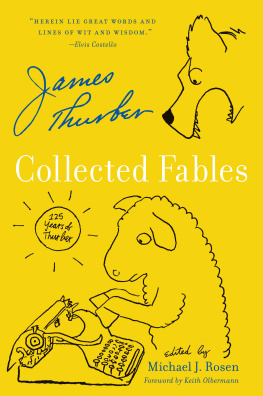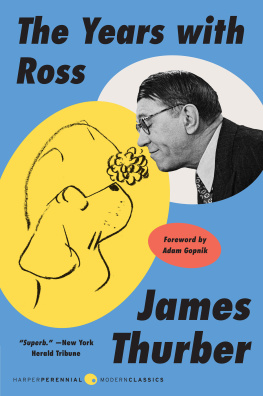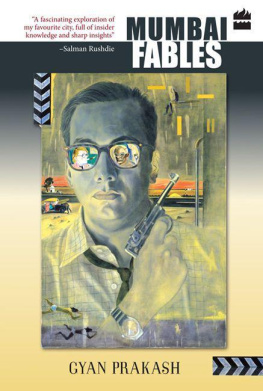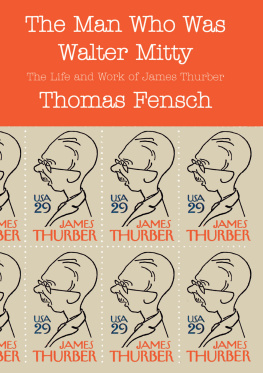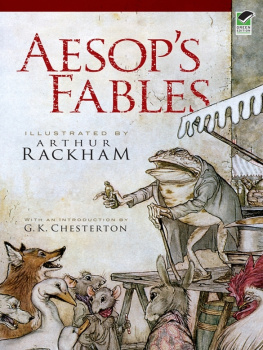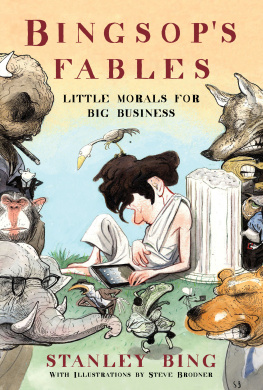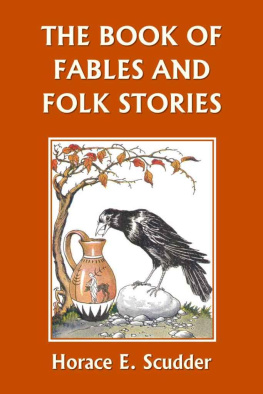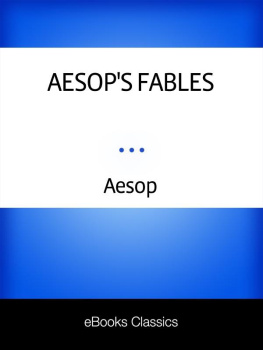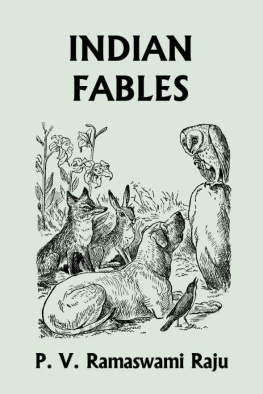Contents
Guide
Herein lie great words and lines of wit and wisdom as might be read by a father to a son, or, for that matter, a mother to a father while a daughter stands with arms folded and a knowing look. How grateful I am that my dad read me Thurber, otherwise Id know nothing of these fables and have no suitable way to bide my time until our current nightmares tumble from a careless window.
Elvis Costello
Every sport has its Ultimate, its Greatest of All Time: Babe Ruth, Ali, Nicklaus, Pel, Federer, The Don. The sport of creating laugh-out-loud cartoons, fables, and funny essays has Thurber. He is, and probably always will be, The One.
Stephen Fry
Thurber celebrates the losers, the awkward, the unpopular... and yet hes never a smug observer.
Tracey Ullman
James Thurber taught me how to read. His pictures were so weirdly intriguing that I had to know more, so into the words I went, and things just got funnier. Its one of the longest and most important relationships in my reading life.
Michael McKean
Thurbers genius was to make of our despair a humorous fable.
John Updike, 1956
It was Whitman who wanted to turn and live with the animals; it is Thurber who has succeeded in the only possible terms, by enlisting them in the endless battle for human sanity.
Manchester Guardian (London), 1957
Take Aesop, or La Fontaine, add a dash of lunacy, garnish with the drawing of a man whose perfect vision is undistracted by good sight and you still wont have a Thurber fable... You wont have it because a Thurber fable is unique in the most unicorn sense of the word. A Thurber fable shares that special world of humor that we identify as Thurbeia, a wispy, wacky realm somewhere between heaven and mirth, inhabited by fierce, long-haired women, by apprehensive men whom life has passed by (and in the wrong direction at that), and by the hound dog of Idealism staring confounded at the bug of Reality.
Evening Citizen, Ottawa, Canada, 1953
These fables deliciously revise some of the well-known classic fables. They are illustrated by Mr. Thurbers incomparableand I mean incomparabledrawings. For no one fills a few crude looking lines with more laughing gas than he does.
Chicago Tribune, 1940
These tiny stories, in which a wide variety of animals show us how human we really are, are completely uproarious.
Saturday Review of Literature, 1940
But Thurber, the fabulist, easily engages the invaluable services of Thurber, the scratch-pad artist. These ectoplasmic figures, seemingly executed in a telephone booth between wrong numbers, enhance his Fables more dynamically than the work of any other artist could, had he had a selection from Cimabue to Margaret Bourke-White. The little figures of animals and people depict every human mood save nobility and serenity. This is no lack, since there doesnt happen to be any serenity or nobility in the Fables.
Saturday Review, 1956
Thurber is an original. Critics who call him merely the Swift of our time underrate him, because he is something special, something all himself, as important a phenomenon of our time as the Worlds Fair or the World War. I wouldnt miss one of his books for anything. But Im warning you, the laughs in this one are mostly desperate.
Memphis Tennessee Appeal, 1940
In Germany this Aesop in reverse would be burned at the stake as subversive, mad, immoral, decadent, and defeatist. He is also delightful.
The Nation, 1940
[Thurber] writes so simply and so pointedly that readers find it hard to believe that there isnt some esoteric meaning hidden under every word, and that his own illustrationssimple, often only one line drawingsare just what they look like and not a kind of ink curtain hiding all sorts of subtleties. You may not like him (though his devotees cant understand your having such a blind spot) but anyone who says he cant understand him is in a fog of his own making.
Chicago Sunday Tribune, 1956
[Thurbers fables] are spare, luminous, concentrated, they are Thurbers late quartets. His conflict has moved to a higher plane, its no longer only man versus gadgets, or man versus woman. Its satire versus humanism; Thurber doesnt hate the human race, like Swift; he cares for it, and hopes, he has had a vision of paradise... But finally this is the distilled wisdom of the blind prophet.
Observer, London, 1957
So long as Mr. Thurber continues to people our darkness with these little doodles of his, we Americans are not much in danger of losing the uses of laughter.
Buffalo, NY News, 1956
Here Thurber energetically continues his huge self-assigned task of trying to kid mankind into taking itself seriously. And if he fails, it is only because mankind isnt listening.
Texas News, Lufkin, 1957
I always read my Thurberto laugh and learn.
Jon Scieszka
I was introduced to Thurber in high school, and thats when I became a writer.
Roy Blount, Jr.
Contents
It doesnt come up in conversation much, but I have a tattoo on my right arm of a moth flying toward a star.
Obviously, James Thurber did not draw this on my arm and he certainly did not tattoo it there either, but nevertheless the Moth and the Star are his, in the same way that the Peacelike Mongoose is his and the Bear Who Let It Alone is his and the Unicorn in the Garden is his. They, and all his other animal stand-ins for the pageant of humansbrilliant and dim alikeare his, eternally, indelibly, and never to be duplicated. Of course, if you are really serious about Thurbers animals and the fables they populate, you can get tattoos. But as a first step I would recommend reading this first-ever, authoritative compilation of the fables. Tattoos can wait.
But reading the fables cant. They remain startlingly appropriate to the human condition, and as someone who has read them for half a century and read them aloud for a decade, I can testify that they remain precisely relevant to the freshest political and cultural quicksand of each new year. We keep making the same mistakes, practically begging Thurbers Very Proper Gander and his Bat Who Got the Hell Out and his Chief of Police Dogs to keep rotating to the front of the stage to say, We told you so.
* * *
I first tried to do verbal justice to Thurbers writing in 1979 as part of a public-speaking class in college. I had seen the great William Windoms one-man Thurber show on PBS, and in those pre-DVR (indeed, pre-VCR) days, I managed to record most of it on audiocassette. After I did a bad impression of Windoms spectacular interpretation, a classmate told me I should abandon my intended career in sports and newscasting and instead make my living by reading Thurber aloud. I said Id be happy to but, all things considered, I was likelier to be asked to pay for the privilege than be paid for it.
I was finally proved wrong by the very person who had introduced me to Thurber: my father. During his last illness, I read to him every night in the hospital for seven months, and one night after I had read about twenty Thurber fables to him, he asked me to read The Peacelike Mongoose for a second time. He then told me to stop for a moment, and after long thought he said, You should do that in your newscast. I said that didnt seem to make sense and besides, there were copyrights and such to worry about. Thats when my dad said, How many times have I ever suggested anything to you about your shows? I couldnt recall him ever having done so. Try it, he said. Whats the worst that can happen? He slipped into a coma not long after, and in his honor I went on television and read The Peacelike Mongoose.
His conviction that reading the story would appeal to my audience was correct. The ratings went up, and soon the Thurber segments became the most-watched quarter-hour on MSNBC every Friday. But my conviction that reading the story would precipitate a proprietary response from Thurbers literary estate was also right.
Next page
